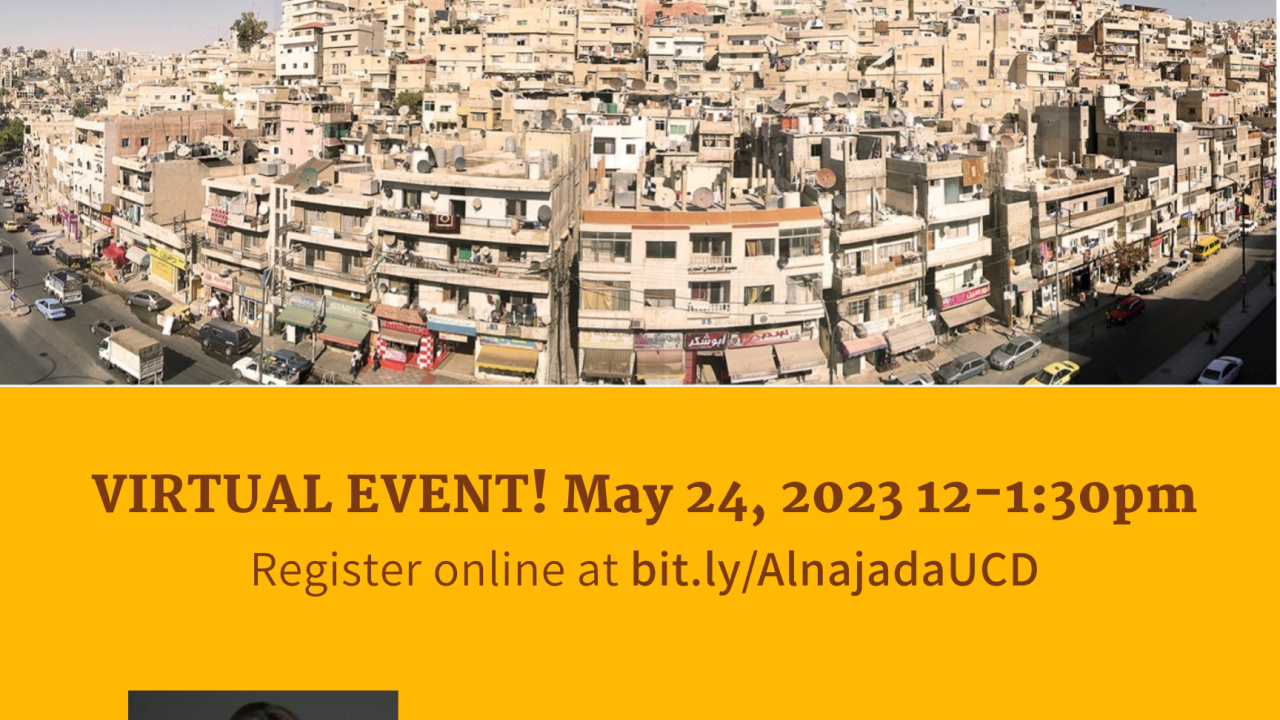
Event Date
Event Date
Location
Zoom (all virtual)
Since 1948, Palestinian refugees in Amman have built what they call, in everyday conservations and written documents, a camp. Officially, however, the camp went from being recognized as a Palestinian refugee camp in the 1960s to becoming a ‘squatter settlement’ in World-Bank-funded projects in the 1990s, all the while remaining unrecognized by the organization responsible for Palestinian refugees, UNRWA. Using archival research and ethnographic fieldwork in unrecognized Palestinian camps in Jordan, this talk critically probes what a refugee camp is—delving into thorny questions of recognition, ‘Third World’ development, informality, and housing struggles. This talk will reveal three aspects of unrecognized camp history: 1) the camp as the site of multiple forms of recognition; 2) the camp as the site of slum upgrading projects that erase its Palestinian identity; 3) the camp as a place of transformative acts of inhabitation against dispossession. In locating this shift, in the 1980s and 1990s, toward increasingly illegal settlements, this talk will foreground a new form of dispossession introduced into the Palestinian experience by UNRWA’s positivist rules of recognition.
This all-virtual talk is free and open to the public; please register to attend at https://bit.ly/AlnajadaUCD
Dr. Alnajada is a UC President's Postdoctoral Fellow in the Department of History at UC Davis. In this talk, she discusses her current research on refugee settlements in Amman, Jordan.
This all-virtual talk is free and open to the public; please register to attend at https://bit.ly/AlnajadaUCD
Dr. Alnajada is a UC President's Postdoctoral Fellow in the Department of History at UC Davis. In this talk, she discusses her current research on refugee settlements in Amman, Jordan.
For more information please contact sfahrenthold@ucdavis.edu (Stacy Fahrenthold, History)
Event sponsored by UC Davis Department of History; the Middle East/South Asian Studies Program; the Human Rights Studies Program; and the Global Migration Center at UC Davis.
